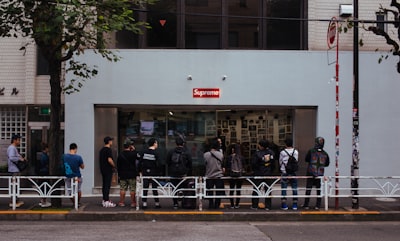
The Case at Hand
The case centers around the interpretation of a federal law, Section 230 of the Communications Decency Act. This law has provided immunity for tech companies from liability for content posted by their users, shielding them from lawsuits over potentially harmful or defamatory material. The rationale behind this protection is that online platforms should not be held responsible for the actions of their users.
However, critics argue that this immunity has allowed Big Tech companies to flourish without proper accountability, inadvertently resulting in the spread of misinformation, hate speech, and other harmful content. They contend that tech giants should be held responsible for the content on their platforms.
The Potential Ramifications
If the Supreme Court rules in favor of narrowing the protections provided by Section 230, it could have profound effects on the tech industry and the internet as a whole.
1. Increased Liability for Tech Companies
Removing or diminishing the immunity currently granted under Section 230 would expose tech companies to a slew of lawsuits, potentially leading to a flood of litigation. This increased liability could force companies to adopt stricter content moderation policies and invest heavily in monitoring and removal of objectionable material.
While this may help curb the spread of harmful content, it could also stifle free expression and innovation as platforms become more cautious in allowing user-generated content.
2. Shifting Power Dynamics
The case could also alter the power dynamics in the tech industry. The dominant players, such as Facebook, Google, and Twitter, have relied on their immunity from liability to maintain their dominant positions. If the protections are scaled back, it could level the playing field, opening the door for new competitors and fostering greater competition.
However, it is equally important to consider that scaling back protections under Section 230 could disproportionately impact smaller platforms and startups, making it harder for them to compete with industry giants.
3. Curbing Online Freedom of Speech
With the potential for increased liability, tech platforms might be more cautious about hosting controversial or unpopular speech. This could lead to self-censorship and a chilling effect on free expression online. Users may find their ability to freely express opinions, share dissenting views, or engage in political discourse curtailed as companies strive to minimize legal risks.
While combating harmful content is crucial, it is essential to strike a balance that preserves the fundamental principles of privacy, free speech, and open dialogue that underpin a democratic society.
The Broader Context
This Supreme Court case is occurring at a time when Big Tech's influence over society and the dissemination of information is under intense scrutiny. Lawmakers and regulators are grappling with the need to promote competition, protect user privacy, and combat the spread of disinformation.
Reforming or reinterpreting Section 230 is just one piece of a complex puzzle. Striking the right balance between protecting online freedoms and holding tech companies accountable for the content on their platforms requires careful thought and consideration.
Conclusion
The Supreme Court's pending decision on the case involving Section 230 could have transformative implications for the tech industry and online freedom. While it is crucial to address the challenges posed by harmful content and misinformation, any changes must be done thoughtfully, taking into account the potential consequences for free speech, competition, and innovation. Balancing accountability with the preservation of fundamental democratic values should be the guiding principle in shaping the future of the internet.
FAQs
What is Section 230?
Section 230 of the Communications Decency Act is a federal law that shields tech companies from liability for content posted by their users. It provides them with immunity, allowing them to avoid legal consequences for the actions or behavior of their platform's users.
What are the arguments for challenging Section 230?
Critics argue that the immunity provided by Section 230 allows tech companies to avoid being held accountable for harmful or defamatory content posted on their platforms. They believe that platforms should be more actively responsible for moderating and removing objectionable material.
What are the potential consequences of changing Section 230?
If Section 230 protections are scaled back or removed, tech companies could face increased liability for the content on their platforms. This could lead to more lawsuits, stricter content moderation policies, and a potential chilling effect on free speech online. It could also impact competition in the tech industry by leveling the playing field or disproportionately burdening smaller platforms and startups.
Original article